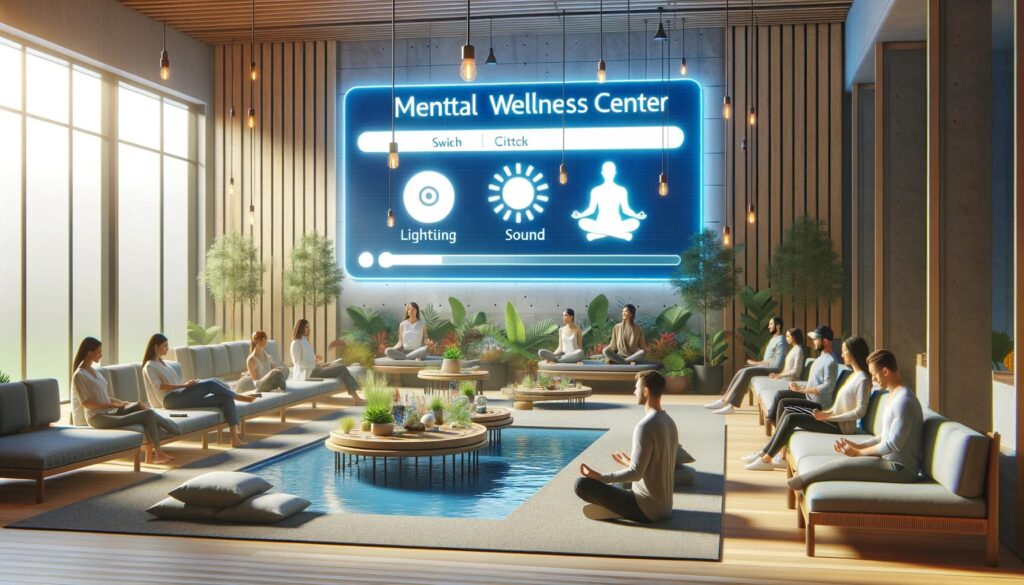In the quest for optimal health, the significance of sleep is often understated. Sleep hygiene refers to the collective habits and practices that are conducive to sleeping well on a regular basis. This article delves into the essence of sleep hygiene and its profound impact on mental wellness.
Understanding Sleep Hygiene
Understanding sleep hygiene is crucial because it directly influences our physical health, mental clarity, and overall quality of life. Sleep hygiene comprises the practices and habits that set the stage for good quality sleep. This isn’t just about the quantity of sleep — although that’s important — but also about the quality of sleep, ensuring that the sleep you get is restorative and uninterrupted.
At its core, sleep hygiene is about creating an environment and adopting routines that promote consistent, uninterrupted sleep. This means making your bedroom a sanctuary for sleep: quiet, dark, and cool, with a comfortable mattress and pillows. It also involves preparing your body for rest with habits that may include reducing caffeine and electronic device use before bedtime.
Adhering to a set of disciplined practices around bedtime can enhance your sleep cycle, which is tied to your body’s internal clock, or circadian rhythm. The goal is to support your body’s natural sleep-wake patterns, which can help prevent sleep disorders and nighttime awakenings. In doing so, you can improve not just your sleep but also your mental and physical health.
The Pillars of Sleep Hygiene
Consistency is Key
One of the fundamental aspects of sleep hygiene is maintaining a consistent sleep schedule. Going to bed and waking up at the same time every day, including weekends, helps to regulate your body’s internal clock. This consistency reinforces your natural circadian rhythms, making falling asleep and waking up naturally easier.
Crafting a Pre-Sleep Routine
A relaxing pre-sleep routine can significantly improve your sleep quality. This can involve activities such as reading, taking a warm bath, or practicing meditation. The aim is to signal to your body that it is time to wind down and prepare for rest.
The Sleep Environment
The environment in which you sleep can greatly influence the quality of your rest. A cool, dark, and quiet room often promotes the best sleep. Investing in a comfortable mattress and pillows can also make a substantial difference.
Daytime Habits and Sleep Quality
Exercise is not only beneficial for your physical health but also for your sleep. However, it’s important to avoid vigorous workouts close to bedtime. Additionally, exposure to natural light during the day can help maintain a healthy sleep-wake cycle.
Nutrition and Sleep Hygiene
Mindful Eating and Drinking
What you consume can have a profound effect on your sleep. Caffeine and nicotine are stimulants that can interfere with falling asleep. Similarly, alcohol might make you feel drowsy but can disrupt the sleep cycle. Eating big meals late in the evening can also be detrimental to sleep quality.
Balancing Fluids
Balancing fluid intake is also crucial. Drinking too much before bed can cause disruptive nighttime awakenings, while too little might leave you dehydrated and restless.
Sleep Disorders and Professional Help
Sleep disorders are a significant barrier to achieving restorative sleep and can profoundly affect overall health and daily functioning. Recognizing the symptoms of common sleep disorders, such as insomnia, sleep apnea, and restless leg syndrome, is the first step toward addressing them. Insomnia involves difficulty falling or staying asleep, sleep apnea is characterized by pauses in breathing during sleep, and restless leg syndrome causes uncomfortable sensations and an urge to move the legs while resting.
Professional help is essential in diagnosing and managing these conditions effectively. A healthcare provider can offer a thorough evaluation, which may include sleep studies, and create a tailored treatment plan. This plan could incorporate various approaches such as lifestyle modifications, cognitive-behavioral therapy for insomnia (CBT-I), or medical interventions like CPAP machines for sleep apnea.
Proactively seeking professional help when sleep issues arise can prevent long-term complications associated with sleep deprivation, such as cardiovascular disease, weight gain, and mood disorders. Effective management of sleep disorders is a collaborative process, often requiring ongoing adjustments and support from healthcare providers. By addressing sleep disorders with professional assistance, individuals can significantly improve their sleep quality and, consequently, their overall well-being.
Technology and Sleep
The Impact of Screens
The blue light emitted by screens on televisions, computers, and smartphones can interfere with the production of melatonin, the hormone that regulates sleep. Limiting screen time before bed is an essential aspect of sleep hygiene.
Sleep Tracking and Analysis
Technological advancements have made it possible to track and analyze sleep patterns. While these tools can be useful, they should not replace professional medical advice if sleep issues persist.
Mental Wellness and Sleep
The Bidirectional Relationship
Sleep and mental health have a bidirectional relationship. Poor sleep can lead to stress and anxiety, while mental health issues can further complicate sleep patterns. Addressing one can often lead to improvements in the other.
Stress Management for Better Sleep
Stress management techniques such as deep breathing exercises, yoga, and mindfulness can improve sleep hygiene by promoting relaxation and reducing anxiety.
Conclusion
Incorporating good sleep hygiene practices into your daily routine can improve sleep quality and mental wellness. While establishing these habits may require some initial effort, the long-term benefits for health and well-being are invaluable. Remember that if sleep problems persist, consulting a healthcare professional is the best course of action. We take a significant step towards a healthier, more balanced life by valuing and prioritizing sleep.




